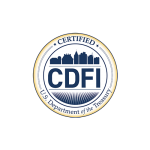How Do You Keep Your Personal Information Safe Online?
In today’s technology-saturated world, it’s hard to go a few days of watching the news without hearing about a major data breach. A breach that, within a few clicks, can expose millions of customer’s data to cybercriminals. Here are a few tips you can ensure that your personal information stays safe from cybercriminals online.
Create Strong Passwords
Think about it, your password to your computer is what your key is to your front door. Strong, unique passwords are extremely important to protect your online accounts from a cyberattack. We recommend using a combination of lower and upper-case letters, numbers, and symbols to create a hard-to-crack code that will thwart a hacker’s cyberattack plans.
Stay Private on Social Media
We all know that one friend who shares too many intimate details of their life online. Not only can this be kind of annoying (sorry), but it can also put your personal information at risk. If you want to privatize your online life, check your privacy settings to see who is able to see your posts. Be cautious when posting your location, birthday, location, and other personal details.
Backup Your Data
Data backup is a prevention tactic that will ensure any lost, or stolen data is replaceable after the event of a cyber breach. Backup––preferably daily or weekly––saves your files from inevitable data loss or data misplacement. Routine data backups ensure that if you mislay data or accidentally delete something, it can always be restored.
Use Free Wi-Fi With Caution
Everybody loves free things. But when it comes to free Wi-Fi, you need to use caution when opening your security network to free public Wi-Fi networks. Using free Wi-Fi for school work, or activity that doesn’t require much personal information is probably safe. However, if you plan on doing a little online shopping at your local coffee shop proceed with extreme caution. Since very few public Wi-Fi networks have stout security in place, it can be risky to use personal information on a domain that could easily be breached.
Double-Check if a Site Is Secure
Before entering your personal information into a website, always check to make sure the domain is secure. If you want to know if a website is secure or not, look at the top of your browser. If there’s a lock symbol and the URL begins with “https,” that means the website is secure. Another indication of a secure website is a “verified secure” seal.
Invest in Additional Security
Since your online personal information can’t be stored in a safe, per se, it’s important that you have the necessary means to keep it safe from online predators. Investing in anti-virus software, anti-spy software, and a firewall are all ways you can ensure that your personal information stays out of the hands of criminals. In addition, an IT company can help you look further into your online activity and point out any cyber vulnerabilities within your data management.
However you plan to keep your information safe, always remember that investing in protection now can save you from spending fortunes in the future.
For more information about personal finances and tips from the Metro team, read more on our blog.






